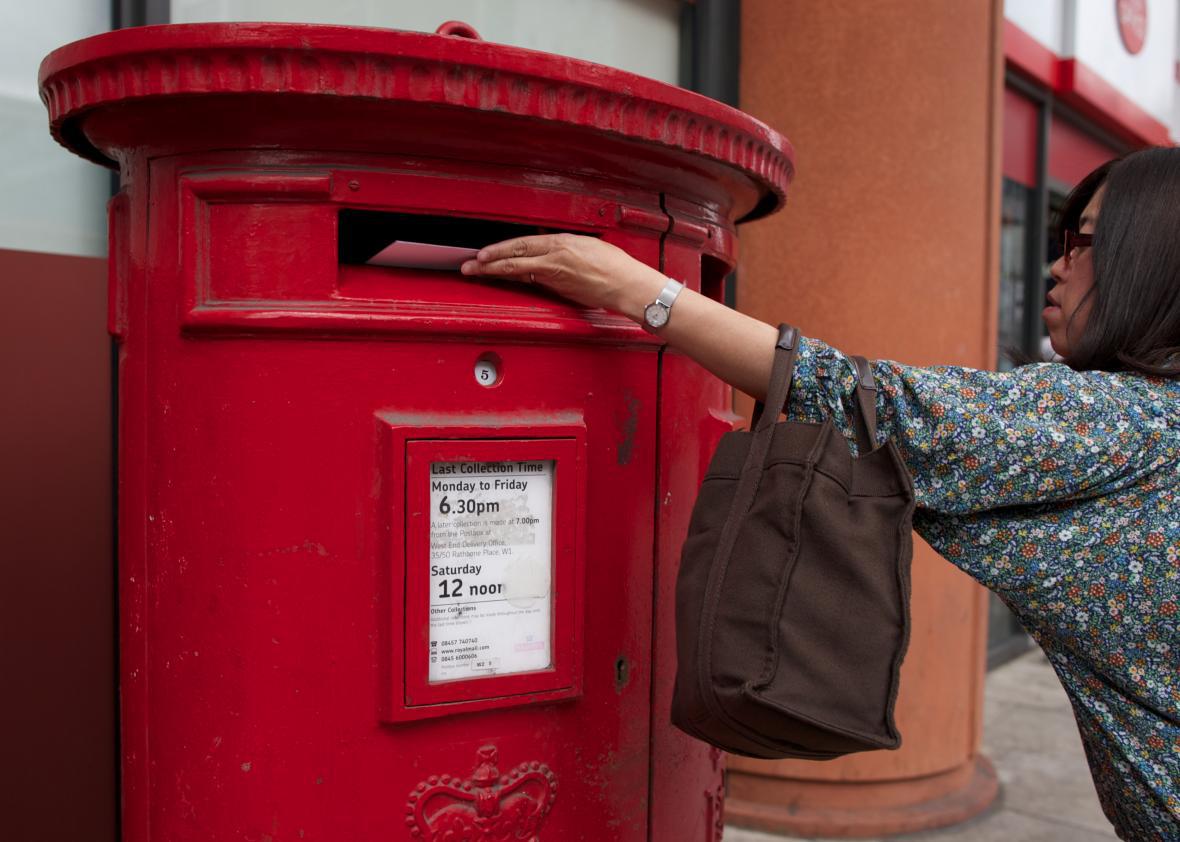In the October issue of the Atlantic, a host of thinkers are asked, “What concept most needs a word in the English language?” Naturally, among the answerers was Lizzie Skurnick, author of That Should Be a Word, who has made a career out of pinpointing terms that should exist in our culture, but do not. (I like to imagine her reflecting on the holes in the lexicon, and in the work force, and then sitting bolt upright to cry, “That should be a job!”) Her response to the question: “We’re in dire need of a word for the email you put off responding to because you want to give it your full attention—and thus never answer, giving the sender the impression you don’t care, when in fact it is the most important thing in your inbox.”
And she’s right! What happens to an email deferred? As Langston Hughes once said, it dries up, like a raisin in the sun, and simultaneously expands until its shadow darkens your entire desktop. The longer you take to reply, the more you feel like you need to justify the lag time, and the higher the pressure mounts to write something really thoughtful, or perceptive, or simply lengthy. It’s an unfortunate reality of the connected age: Messages of middling importance, problems with easy fixes, and low-stakes pleasantries garner immediate responses, while the deeply crucial—under its cone of nervous silence—is readily mistaken for something so trivial you can’t even be bothered to type out a “tx for sending”.
At this moment, I have three Important messages in my inbox that I have not responded to. One was sent two Wednesdays ago, on Sept. 21. One was sent on March 22. One was sent Dec. 10, 2015. In addition, I have lovely missives from far-flung friends dated May 9, May 31, July 5, and Aug. 4, none of which I have answered. I have, languishing away, a fun and cheerful letter from an ex with whom I would like to platonically reconnect. Last winter, I emailed my literary idol in a burst of courage and she, conscientious as one no doubt must be to become a literary idol, replied the next day. I didn’t write back for three weeks.
So, yes, Skurnick, we need a word for these communiqués. Dreadmail? Ignorrespondence? Procrastigrams? Casualties of Reverse Deservingness Syndrome? To the larger point: What is wrong with us? The phenomenon, it seems, is not confined to email: Anecdata suggest that voicemails, particularly from parents or grandparents, inspire similar behavior in friends and colleagues. (Furthermore, I tend to mark meaningful texts as perpetually “unread” in lieu of answering them, but that could be my own private pathology.)
Presented with Skurnick’s plea for submissions, certain wags have suggested that the words she sought were “phone call.” As in: When someone sends you a weighty message, you should respond by dialing them up. But this tack ignores a central tenet of modern-day courtesy. Answers should exist in the medium the original communicator has selected.
This is basic politeness. If a person chooses to approach you via email, it may be because she does not wish to talk out loud about the subject for whatever reason. Perhaps she would prefer to organize her thoughts in writing. Perhaps she hopes to make her opinion known without having to engage in discussion. Picking up the phone escalates the exchange, which might communicate respect, but could as easily stoke anxiety or force unwanted intimacy. Likewise, if your aunt leaves you a voicemail, replying with a text or email—no matter how friendly—is an insulting demotion. It implies that you don’t want to listen to her voice, or that the concern she’s raising is not “worth” an interaction in real time.
The avenues through which we talk to one another have forked into a dizzying multitude. Hierarchies have emerged. When possible, we convey bad news in person; a step down, there are phone calls; then email; then texting; then social media like Facebook or Twitter; then IMing; then, maybe, Snapchat. Sometimes, the line of succession wavers: A quick face-to-face catch-up with a colleague might feel less formal than a carefully worded Slack. A heartfelt Facebook message might contain more emotion than a text or email. But regardless of the case-by-case variations in platform pecking order, switching media mid-conversation poses a risk. Jump up a rung, and you’ve intruded upon the messenger. Jump down, and you’ve diminished the message.
This is especially true in dating, where the progression from Tinder or Hinge to actual text message must be thoughtfully orchestrated. Once you’ve swapped numbers, communicating via the app represents a step backward, but a voice message feels unspeakably bold. (And once you’ve swapped other things, every encounter that’s not face-to-face is a letdown.) Likewise, among my friends, short emails and texts are mostly interchangeable, but replying to either with a phone call means someone is injured. At work, all is well when the Slacks and emails flow in separate streams. But a Slack in response to an email indicates that the issue is pressing and needs immediate resolution. And an email in response to a Slack sends a mild warning: Your coworker is not in the mood to shoot the breeze.
On rare occasions, however, an escalation can amount to a caring gesture. I called my college roommate the other day in reply to an email puck we’d been passing back and forth. When she immediately asked if I was OK, I realized I had broken an invisible code. Still, I felt an unexpected pleasure in hearing her voice after so many quick written exchanges dashed off between day-to-day tasks. It felt like a slow, warm unfurling. There should be a word for that.
